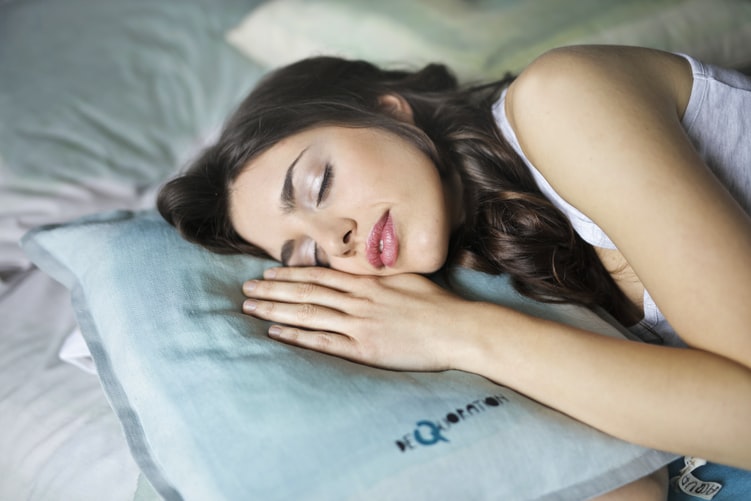Many of us might seem like we’re more comfortable than ever. We have our blanket, our glass of water by the bed, our favorite pajamas… but we still just can’t go to sleep. Even more concerning, many of us feel consistently anxious and nervous.
In fact, over 45 million Indians are thought to suffer from anxiety disorders today. Anxiety doesn’t just affect your daily life; it also makes it much more difficult to fall asleep. This, as a result, lowers your energy for the next day and makes it harder to concentrate at work, harder to feel motivated, and may even make you experience more anxiety as you worry about disappointing your family or friends.
But you can stop the cycle. If you get a good night’s rest, it’s much easier to tackle the other aspects of anxiety and get back to your life. Today, let’s take a look at the six top tips for beating anxiety so you can get a better night’s sleep.
Table of Contents
Resist the Urge to Nap during the Day
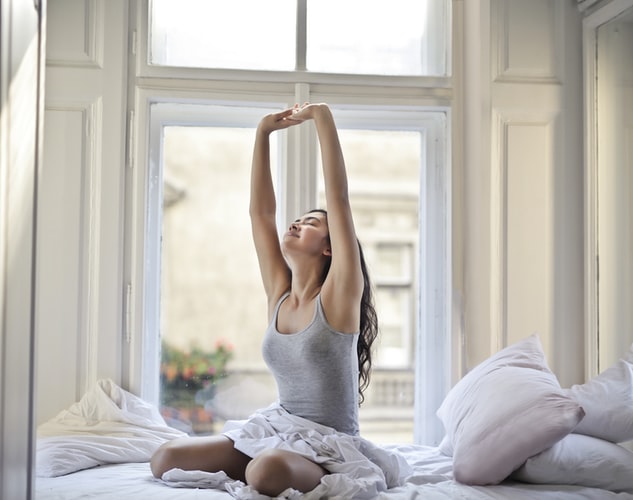
First and foremost, do your best to avoid taking a nap, especially as the afternoon rolls around. We all get it, and we all know how tempting it is to take a little nap as the afternoon heat bears down on us and our circadian rhythms naturally dip. But taking a nap will make you feel more refreshed as darkness falls, and therefore make it harder to sleep.
If you suffer from anxiety and have trouble falling asleep, being as tired as possible when it’s time to go to bed is for your benefit. If you don’t take a nap, you’ll be much more likely to fall asleep as soon as you hit the pillows.
Make Sure You Have a Comfortable Mattress
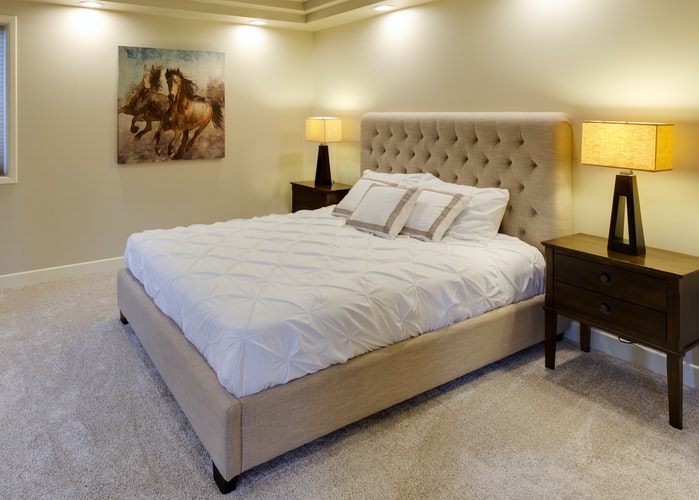
Another often-overlooked tip is mattress comfort. It’s almost impossible to get a good night’s rest on a bad mattress, and especially so if you often feel anxious before bed. However, the reverse is also true: an excellent mattress can make it that much easier to sleep.
The good news is that you don’t have to pick a particularly expensive mattress. In fact, some of the best cheap mattresses will still allow you to fall asleep more easily and avoid anxiety about how tired you’ll be in the morning.
But you might also look into mattresses specifically designed to help people who struggle to go to sleep. These mattresses can help anxious people finally get the rest they need. Combine this review with the other anti-anxiety tips below for the best results.
Shut Off the Computer Before Bed

In the digital age, it’s all too easy to keep looking at our computers or smartphones all the way up until we go to sleep. But this is actually a recipe for bad sleep.
You see, computer screens and mobile device screens both emit a type of blue light that can trick our brains in the thinking that it’s not the time for bed, even if it’s dark outside. For the best results, try to read a book that isn’t on a screen or just avoid screens entirely up to an hour before bed.
This may not tackle your anxiety directly, but it should help if you can’t get your brain to calm down after you close your eyes.
Try Not to Drink Too Much Caffeine

If you have trouble sleeping, either in general or from anxiety, try not to drink too much caffeine throughout the day. It’s all right to have a cup of tea or coffee in the morning, but definitely don’t drink anymore after midday.
In fact, you might want to cut down on caffeine if you have serious anxiety at night altogether. Caffeine can make you feel anxious, nervous, or make your heart rate speed up even when you’re at rest.
You might think that you can get away with drinking several cups of chai throughout the day – after all, doesn’t it have less caffeine than a cup of coffee? While a cup of chai tea does only have about one third the amount of caffeine, it’s easy to go overboard and still drink too much.
Get Daily Exercise
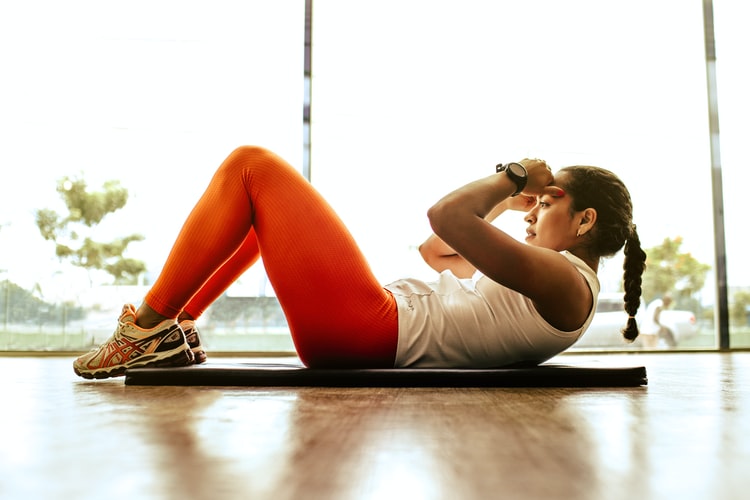
Exercise is important for everyone, but this is doubly true for people with anxiety. Oftentimes (but not always), anxious people don’t expend enough physical energy and end up feeling jittery or anxious toward the end of the day.
Set yourself a daily exercise routine and burn some calories. Not only is this good for getting rid of body fat, but it’s also excellent for burning away stress hormones and helping you relax. Nothing is more rejuvenating than a short workout or run. You don’t even have to exercise particularly hard. Just doing a 15-minute workout will do wonders for your anxiety in most cases.
Just be sure not to exercise too close to bedtime, or you’ll get your heart rate up and won’t be able to calm down in time to sleep on schedule.
Meditate or Do Yoga before Going to Bed
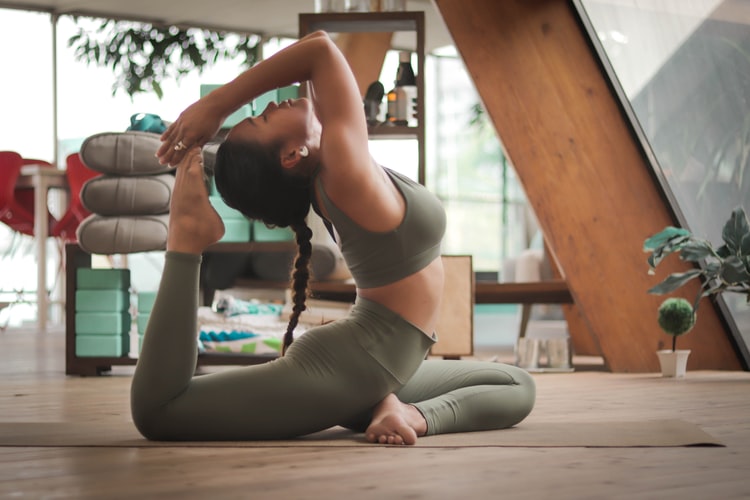
Whether you’re in Rishikesh or you just enjoy yoga anywhere, start or keep doing yoga before bed. Yoga is one of the best ways to relax both the mind and body, and it can help alleviate some of your more anxious feelings before you settle in for sleep.
If you’re not into yoga, consider practicing any type of meditation. The key thing is that meditation allows you to calm your mind, stopping the distracting thoughts that prevent you from falling asleep from rattling around as loudly.
The good news is that meditation and yoga become more effective the more you stick with them. Pick one or the other (or both) and you should see significant improvements in your mental state before bed over time.
Conclusion
In the end, it’s tough to live with anxiety, and even harder to do so when you aren’t getting enough sleep. But the above six tips, especially if you use them together, should help you rest every night and eventually overcome many of the symptoms of anxiety you’ve been experiencing so far. Good luck and good night!
